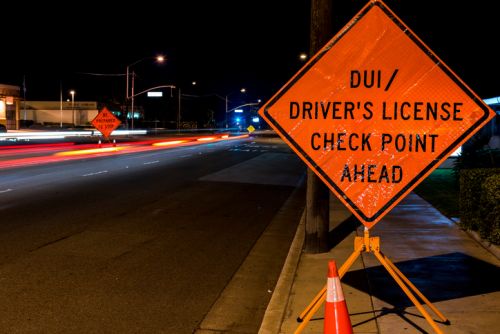Menu
Redacted writing sample for criminal defense blog.
Understanding STATE DWI Laws and Penalties

What Constitutes DWI in STATE?
A driver can be charged with DWI under the STATE criminal statute if he or she operates any vehicle on a highway, street, or any public vehicular area:
- While under the influence of an impairing substance; or
- With a blood alcohol concentration of 0.08 percent or more; or
- With any amount of a Schedule I controlled substance or its metabolites in his or her blood or urine.
For drivers under age 21, STATE has a zero-tolerance policy: It is illegal for an under-age driver to operate a vehicle with any amount of alcohol or drugs in his or her system. If a driver is operating a commercial vehicle, the blood alcohol concentration that constitutes impaired driving is 0.04 percent or more.
Schedule I controlled substances generally include a comprehensive range of opiates, opiate derivatives, hallucinogenics, depressants, and stimulants. Even if the driver has a legal prescription for a controlled substance, driving with the drug in his or her system is prohibited. Having the prescription is not a defense to the charge.
What Are the Penalties for DWI in STATE?
The level of punishment for DWI depends on several factors, including:
- Whether the charge is a first offense or not;
- Presence of grossly aggravating, aggravating, and mitigating factors (explained below);
- Whether anyone was injured or killed or whether the driver’s conduct was likely to injure or kill another person.
Aggravating and Mitigating Factors
The assessment of grossly aggravating, aggravating, and mitigating factors in a DWI case is very complex and has a direct impact on the penalties that result from a DWI conviction. Those sentencing factors include the following:
Grossly Aggravating factors:
- A DWI offense that caused serious injury to or death of another person;
- A DWI arrest with a child under the age of 18 in the vehicle;
- Any prior DWI conviction within seven years;
- Driving on a license revoked by a prior DWI charge.
Aggravating factors:
- Gross impairment or a blood alcohol concentration of 0.15 percent or more;
- Driving with a revoked license;
- Reckless or dangerous driving;
- Negligent driving that caused a reportable accident;
- Passing a stopped school bus;
- Fleeing or trying to escape the police;
- Speeding by 30 mph or more in excess of the speed limit;
- Prior serious motor vehicle offenses, including those not DWI-related.
Mitigating factors:
- Relatively slight impairment or a blood alcohol concentration of less than 0.09 percent;
- A safe driving record;
- DWI circumstances that were otherwise safe and uneventful;
- Impairment by a legally prescribed drug on a dosage within prescribed limits;
- Voluntary entry in an appropriate treatment program after arrest;
- Proof of successful completion of 60 days under continuous alcohol monitoring system.
DWI Sentencing Levels
STATE has six levels of sentencing for DWI:
- Aggravated Level One DWI
- Level One DWI
- Level Two DWI
- Level Three DWI
- Level Four DWI
- Level Five DWI
The levels rank in decreasing order of severity from Aggravated Level One (the most serious) to Level Five (the least serious). The court determines the sentencing level following the DWI trial.
The court relies heavily on the assessment of mitigating, aggravating, and grossly aggravating factors in determining the sentencing level. For example, Level Five DWI, the least serious level, is likely to be applied when mitigating factors are present and no grossly aggravating factors are found. Level Five punishment can include a fine of up to $200 and a maximum prison term of 60 days. The judge may suspend in the sentence in Levels Three, Four, or Five if certain conditions are met.
Potential fines and prison time increase as the sentencing level increases in severity. Like Level Five, sentencing Levels Four and Three are situations that involve no grossly aggravating factors. When grossly aggravating factors exist, the sentencing level will be Aggravated Level One, Level One, or Level Two. The existence of three or more grossly aggravating factors lead to Aggravated Level One sentencing, which carries a maximum fine is $10,000 and a prison sentence of up to 36 months.
Other Penalties and Conditions
In addition to fines and prison terms, conviction of a DWI offense likely will result in some or all of the following being imposed by the court:
- Suspension or revocation of your driver’s license;
- Requirement for undergoing alcohol or drug assessment and treatment;
- Required performance of community service;
- Having an Interlock Ignition Device installed on your car;
- Payment of all fees and court costs related to the arrest and conviction.
Do You Need to Have a Lawyer to Defend You on a STATE DWI Charge?
If you are arrested on a DWI charge in STATE, regardless of the circumstances, it is essential to retain an experienced DWI attorney to represent you. The DWI law is extremely complicated both in terms of how to defend against the criminal charge and regarding facts and circumstances that constitute mitigating and aggravating factors that affect the severity of sentencing.
Providing the best defense requires a STATE attorney who knows the DWI law and court practices relating to the charge and to sentencing. Our criminal defense attorneys at LAW FIRM have substantial experience defending DWI charges arising from alcohol and drugs and are here to vigorously defend you against all DWI charges in STATE state courts.
In addition to state court DWI charges in STATE, you can be charged with a DWI offense in federal court if you drive impaired in one of our state’s federally-owned national parks and protected areas. Our attorneys handle federal DWI charges as well as state DWI charges in STATE.
With offices in X City and Y City, we serve clients throughout northeastern STATE. Contact us today at xxx-xxx-xxxx to schedule an initial consultation.




